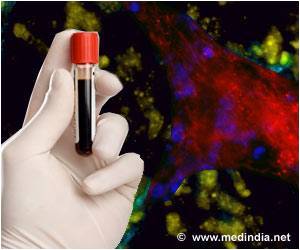Administration of carbohydrate load before and ω-3 polyunsaturated fatty acid infusion during heart surgery reduces complications and hastens patient recovery.
- Complications such as post-operative atrial fibrillation (POAF) and infection may occur after coronary artery bypass graft (CABG) surgery and can retard recovery.
- Carbohydrate and omega-3 fatty acid administration to the patient in the perioperative period can reduce these complications and aid recovery
Reason For Study
Previous studies have shown that preoperative carbohydrate loading is beneficial in reducing occurrence of post-operative insulin resistance. Also incidence of post-operative nausea and vomiting (PONV) was decreased. In addition various studies have shown that perioperative supplementation of ω-3 PUFA improved post-operative outcome in patients undergoing abdominal surgery. A recent study has also indicated that perioperative ω-3 PUFA administration was associated with a better outcome in patients who underwent open heart surgery.TOP INSIGHT
Incidence of atrial fibrillation following coronary artery bypass graft surgery can be reduced by giving carbohydrate and omega-3 polyunsaturated fatty acid (ω-3 PUFA) supplements in the perioperative period.
Methods of the Study
The study was a randomized, double blind trial (neither patients participating nor thedoctors performing the surgery or involved in collecting the patient data were aware of details of patient selection for nutrient supplementation) conducted in a Brazilian Hospital.
Fifty seven patients undergoing CABG surgery were randomly assigned to 1 of the following 4 groups.
- Only preoperative carbohydrate loading (CHO group) – 14 patients
- Preoperative water only (controls) – 14 patients
- Preoperative carbohydrate loading plus intraoperative ω-3 PUFA infusion (CHO + W3 group) – 15 patients
- Only intraoperative ω-3 PUFA infusion (W3 group) – 14 patients
Results of the Study
- Patients who received carbohydrate (CHO) supplementation had lesser incidence of hospital infection.
- Patients who received CHO supplementation had a lesser requirement of vasoactive agents during the operation and during the ICU stay after the operation.
- Incidence of POAF was markedly less in patients who received ω-3 PUFA infusion during the surgery.
Role of Carbohydrates and ω-3 PUFA in Surgery Patients
One of the emerging trends in surgery patients is doing away with a prolonged fasting period prior to surgery. Many anesthesiologist groups and societies have begun to endorse this practice.- A carbohydrate load given 2 hours prior to surgery has been shown to decrease insulin resistance following surgery, decrease nausea and vomiting postoperatively as well as pangs of hunger and thirst after surgery.
- Omega-3 PUFA containing nutrients have been found to reduce incidence of infection and inflammation following surgery. In addition, they are believed to possess anti-arrhythmic properties as well and can decrease incidence of atrial fibrillation in patients undergoing surgery.
- In the field of Cardiology, ω-3 PUFA has been proven to be of benefit in controlling dyslipidemias and inherent complications.
References:
- Omega-3 polyunsaturated fatty acids in cardiac surgery patients: An updated systematic review and meta-analysis - (https://www.ncbi.nlm.nih.gov/pubmed/27293143)
Source-Medindia
 MEDINDIA
MEDINDIA





 Email
Email










